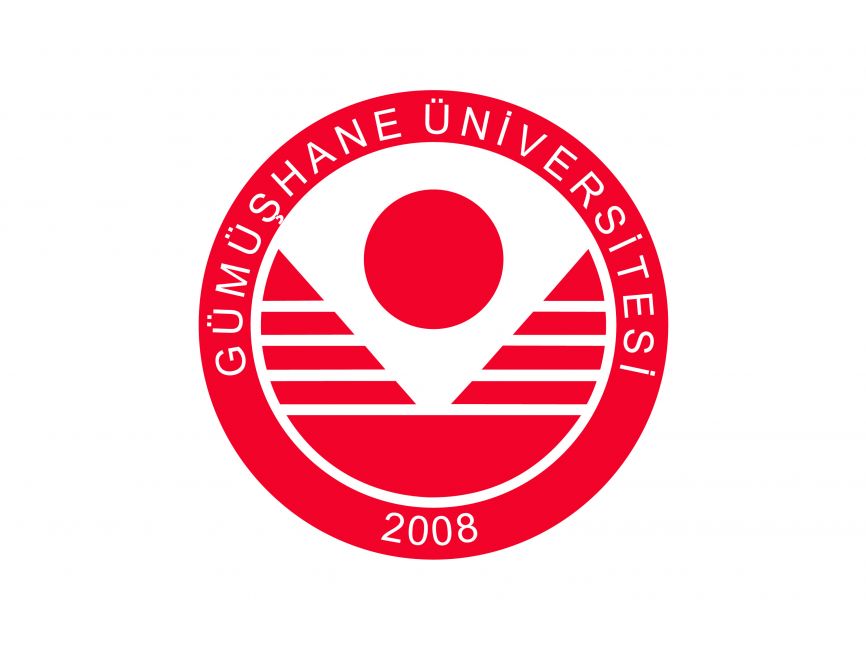First and Emergency Aid
Overview
<!-- wp:paragraph --> <p><strong>Program Description</strong><br><strong>First and Emergency Aid Program at Gümüşhane University: Training Compassionate and Skilled Life-Savers</strong></p> <!-- /wp:paragraph --> <!-- wp:paragraph --> <p>The First and Emergency Aid program at Gümüşhane University is designed to prepare students to provide essential care in emergency situations, with a strong focus on life-saving techniques and immediate medical intervention. This comprehensive program offers students in-depth theoretical knowledge and practical skills required to assess, stabilize, and manage patients in critical conditions. Students will learn how to perform emergency procedures, handle trauma cases, and deliver pre-hospital care, ensuring that they can act confidently and effectively in emergency medical settings. Through hands-on training, clinical placements, and exposure to real-world scenarios, students will be well-prepared to contribute to healthcare systems as first responders in urgent and emergency situations.</p> <!-- /wp:paragraph --> <!-- wp:paragraph --> <p><strong>Program Mission and Vision</strong><br>The mission of the First and Emergency Aid program at Gümüşhane University is to equip students with the necessary knowledge, skills, and compassion to provide effective emergency medical care. The program emphasizes rapid decision-making, critical thinking, and patient safety in high-pressure environments. Its vision is to produce highly competent professionals who can respond to medical emergencies with confidence, professionalism, and care, contributing to the betterment of public health and safety.</p> <!-- /wp:paragraph --> <!-- wp:paragraph --> <p><strong>Curriculum Structure</strong><br>The curriculum of the First and Emergency Aid program is designed to provide students with both theoretical knowledge and practical experience. Students will learn about medical emergencies, trauma care, CPR, patient assessment, and emergency transport. Key courses include:</p> <!-- /wp:paragraph --> <!-- wp:paragraph --> <p><strong>Core First and Emergency Aid Courses</strong></p> <!-- /wp:paragraph --> <!-- wp:paragraph --> <p><strong>Introduction to First Aid and Emergency Medical Services (EMS)</strong>: This foundational course introduces students to the principles of first aid and emergency medical services. Students will learn about the role of first responders, the basics of emergency care, and the importance of rapid intervention in medical emergencies.</p> <!-- /wp:paragraph --> <!-- wp:paragraph --> <p><strong>Anatomy and Physiology</strong>: Students will gain an understanding of human anatomy and physiological processes, which is essential for assessing patients' conditions and providing appropriate emergency care. The course covers the structure and function of major body systems.</p> <!-- /wp:paragraph --> <!-- wp:paragraph --> <p><strong>Cardiopulmonary Resuscitation (CPR) and Advanced Airway Management</strong>: This course teaches students life-saving techniques such as CPR, use of defibrillators (AEDs), and airway management to restore and maintain breathing and circulation in emergency situations.</p> <!-- /wp:paragraph --> <!-- wp:paragraph --> <p><strong>Trauma Management</strong>: Students will learn the principles of managing trauma patients, including those with fractures, bleeding, burns, and spinal injuries. The course covers injury assessment, stabilization techniques, and transport protocols for trauma patients.</p> <!-- /wp:paragraph --> <!-- wp:paragraph --> <p><strong>Medical Emergencies and Disease Management</strong>: This course focuses on managing patients with medical emergencies such as heart attacks, strokes, asthma attacks, diabetic emergencies, and allergic reactions. Students will learn how to assess and provide immediate care for these conditions.</p> <!-- /wp:paragraph --> <!-- wp:paragraph --> <p><strong>Patient Assessment and Triage</strong>: Students will learn how to perform a thorough assessment of patients in emergency situations, including taking medical histories, conducting physical examinations, and evaluating vital signs. The course also covers triage techniques, helping students prioritize patients based on the severity of their conditions.</p> <!-- /wp:paragraph --> <!-- wp:paragraph --> <p><strong>Emergency Transport and Pre-Hospital Care</strong>: This course covers the transport of patients in emergency medical situations, focusing on safe transportation methods, the use of ambulances, and coordinating with other healthcare professionals during emergency transport.</p> <!-- /wp:paragraph --> <!-- wp:paragraph --> <p><strong>Pharmacology for First Responders</strong>: Students will learn about common medications used in emergency medical care, including pain management, antibiotics, and cardiac drugs. The course emphasizes safe administration and understanding of drug interactions and side effects.</p> <!-- /wp:paragraph --> <!-- wp:paragraph --> <p><strong>Psychological Aspects of Emergency Care</strong>: This course addresses the psychological challenges faced by first responders and patients in emergency situations. Topics include dealing with trauma, managing stress, and providing emotional support to patients and their families.</p> <!-- /wp:paragraph --> <!-- wp:paragraph --> <p><strong>Emergency Medical Equipment and Techniques</strong>: Students will become familiar with the various equipment used in emergency care, including splints, bandages, oxygen masks, and portable defibrillators. The course includes practical training in using this equipment effectively.</p> <!-- /wp:paragraph --> <!-- wp:paragraph --> <p><strong>Ethics and Legal Aspects of Emergency Medical Services</strong>: This course focuses on the ethical and legal responsibilities of first responders. Topics include patient consent, confidentiality, and professional conduct in emergency medical situations.</p> <!-- /wp:paragraph --> <!-- wp:paragraph --> <p><strong>Clinical Practicum and Internship</strong>: The program includes extensive hands-on clinical practice, where students apply their knowledge in real-world emergency settings. Under the supervision of experienced professionals, students will participate in emergency response scenarios, hospital-based emergency rooms, and fieldwork in collaboration with ambulance services.</p> <!-- /wp:paragraph --> <!-- wp:paragraph --> <p><strong>Disaster and Mass Casualty Management</strong>: Students will study the principles of disaster response and mass casualty management, including triage protocols, coordination with emergency services, and managing large-scale emergencies in community settings.</p> <!-- /wp:paragraph --> <!-- wp:paragraph --> <p><strong>Capstone Project</strong>: The program concludes with a capstone project, where students are required to analyze a specific emergency response issue, develop solutions, and present their findings. This project allows students to demonstrate their problem-solving abilities and practical knowledge of emergency care.</p> <!-- /wp:paragraph --> <!-- wp:paragraph --> <p><strong>State-of-the-Art Facilities and Labs</strong><br>Gümüşhane University offers students access to specialized simulation labs that replicate real-life emergency medical situations. These labs are equipped with medical mannequins, emergency medical equipment, and simulation software, providing students with the opportunity to practice emergency care skills in a controlled and realistic environment.</p> <!-- /wp:paragraph --> <!-- wp:paragraph --> <p><strong>Emphasis on Practical Experience and Industry Collaboration</strong><br>The First and Emergency Aid program places a strong emphasis on practical experience. Students are required to complete internships and clinical placements at hospitals, emergency medical services, and other healthcare facilities. These hands-on experiences give students valuable exposure to real-world emergency medical care, helping them develop the confidence and skills needed for their future careers.</p> <!-- /wp:paragraph --> <!-- wp:paragraph --> <p><strong>Career Opportunities</strong><br>Graduates of the First and Emergency Aid program are well-equipped to pursue careers as emergency medical technicians (EMTs), paramedics, first responders, and emergency care providers in various healthcare settings. Career opportunities also exist in ambulance services, fire departments, disaster relief organizations, and healthcare facilities. Graduates may also choose to pursue further education in nursing, medicine, or healthcare administration.</p> <!-- /wp:paragraph --> <!-- wp:paragraph --> <p><strong>Shaping the Future of Emergency Care</strong><br>The First and Emergency Aid program at Gümüşhane University provides students with the essential skills, knowledge, and compassion needed to excel in the field of emergency care. With a focus on rapid response, critical thinking, and patient-centered care, the program ensures that graduates are ready to make a significant impact in the field of emergency medical services and provide life-saving care to those in need.</p> <!-- /wp:paragraph -->
Program Description
The First and Emergency Aid program at Gumushane University offers a comprehensive curriculum designed to prepare students for successful careers in this dynamic field. The program combines theoretical knowledge with practical skills, ensuring graduates are ready for the challenges of the industry.
The program is taught by experienced faculty members who are leaders in their respective fields, providing students with insights into current industry practices and future trends.
Curriculum Highlights
- Advanced Research Methods: Learn cutting-edge research techniques and methodologies.
- Industry Analysis: Explore current industry trends and develop analytical skills.
- Leadership and Management: Develop essential leadership skills for managing teams and projects.
- Innovation and Entrepreneurship: Cultivate creative thinking and entrepreneurial mindset.
- Digital Transformation: Understand how technology is reshaping industries and businesses.
- Sustainable Development: Explore environmentally sustainable practices and their implementation.
- Global Markets: Study international market dynamics and global business operations.
- Technology Integration: Learn to leverage technology for improved business outcomes.
Requirements:
- Bachelor's degree (for Master's programs) or equivalent qualifications.
- Proven English language proficiency (IELTS 6.5+ or equivalent).
- Complete transcripts from previous education.
- A compelling letter of motivation explaining your interest in the program.
- Two letters of recommendation from academic or professional references.
- Valid passport with appropriate visa status or eligibility.
Benefits:
- World-class faculty with extensive industry experience.
- Modern campus facilities and cutting-edge learning environments.
- Strong industry partnerships providing networking opportunities.
- Internship opportunities with leading companies in the field.
- Comprehensive career services including job placement assistance.
- Access to a global alumni network for lifelong professional connections.
Begin your educational journey today.
Apply now and take the first step towards your future.






